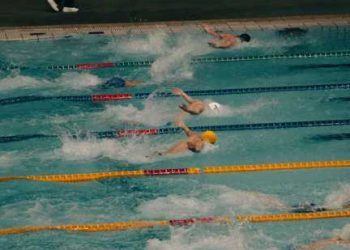As athletes, we often push ourselves to the limit to achieve our goals and perform at our best. We train rigorously, follow strict diets, and constantly strive to improve our performance. While this dedication and determination are admirable, it is equally important to recognize the importance of taking recovery days to rest and rejuvenate both our bodies and our minds.
Recovery days are essential for athletes for several reasons. Firstly, rest is crucial for allowing our bodies to adapt and recover from intense physical activity. When we train, our muscles undergo micro-tears as they are worked harder than usual. These tears need time to heal and repair in order to grow stronger and more resilient. Rest days give our muscles the opportunity to repair themselves and build new muscle tissue, leading to increased strength and endurance over time.
Additionally, rest days also allow our bodies to replenish energy stores and recover from the stress of training. Intense physical activity depletes our glycogen stores, the primary source of energy for our muscles. Rest days give our bodies the chance to replenish these stores through proper nutrition and hydration, ensuring that we have the energy we need to perform at our best during our next training session or competition.
Furthermore, taking time off from training can help prevent overtraining and burnout. Overtraining occurs when we push our bodies too hard for too long without giving them adequate time to rest and recover. This can lead to symptoms such as fatigue, decreased performance, and increased risk of injury. By incorporating regular rest days into our training schedule, we can prevent overtraining and give our bodies the time they need to recover and adapt to the demands of our training program.
In addition to the physical benefits of rest days, taking time off from training is also important for our mental well-being. Training and competing at a high level can be mentally exhausting, and it is important to give our minds a break from the constant pressure and stress of performance. Rest days allow us to relax, recharge, and refocus, helping us to maintain our mental clarity and motivation in the long run.
Furthermore, rest days can help improve our overall performance by allowing us to train more effectively and efficiently. When we are well-rested and properly recovered, we are able to train at a higher intensity and with better focus and concentration. This can lead to greater gains in strength, speed, and endurance, ultimately improving our performance on the field or in the gym.
It is important to remember that rest days are not a sign of weakness or laziness, but rather an essential part of any athlete’s training program. By listening to our bodies and giving them the rest they need, we can ensure that we are able to perform at our best and reach our full potential as athletes.
When incorporating rest days into your training schedule, it is important to listen to your body and pay attention to any signs of fatigue or overtraining. If you are feeling tired, sore, or mentally drained, it may be a good idea to take a rest day or engage in lighter activities such as yoga or stretching.
In conclusion, recovery days are essential for athletes to allow our bodies to rest and recover from the demands of training and competition. By taking time off from training, we can prevent overtraining, improve our performance, and enhance our overall well-being. Remember to prioritise rest and recovery in your training program to ensure that you are able to perform at your best and reach your full potential as an athlete.













